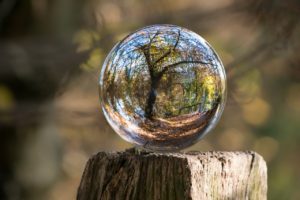Our lives today are full of noise and ever-present distractions and sounds. Noise is among the most pervasive pollutants today and has been identified as a public health threat by the World Health Organization (WHO). Noise can be annoying, distracting, painful, and harmful. Noise adversely affects millions of people and can contribute to elevated levels of stress, mood swings, sleep loss, diminished productivity, high blood pressure, heart disease, depression, hearing loss, and a general reduction in the quality of life and opportunity for tranquility.
The opposite of noise is quiet or silence. Just as too much noise can have negative impacts on your health, research has found that silence can have profound and positive impacts on your health. For example, silence:
- lowers blood pressure (Bernardi et al., 2006)
- increases blood flow and enhances sleep (Beaumont, 2017)
- promotes cognitive development and leads to higher academic success (Bronzaft, 1996)
- is therapeutic for depression and dementia (Kirste et al., 2013)
The practice of silence is the deliberate decision to withdraw from the distractions and noises around us. This practice has been embraced by different spiritual and religious traditions throughout time as a pathway to physical, mental, emotional, and spiritual renewal. As Rumi, a 13th-century Persian poet wrote, “The quieter you become, the more you are able to hear.”
A study published in Heart found that two minutes of silence is more relaxing than listening to “relaxing” music, based on changes in blood pressure and blood circulation in the brain. Although people spend money on noise-canceling headphones and silent retreats, silence does not have to be purchased. It is something that we can create in our lives.
Here are some tips for finding and benefiting from silence:
- Turn off all electronics and let others know you are in silence.
- Schedule time to practice silence. Certain times of the day, like early morning or late night, often work better. Start with 5 minutes and increase the amount of time as you feel comfortable.
- Find out what works for you. Some people enjoy silence as a time of deep reflection while others garden, walk, sketch, or write in silence.
- You might become aware of all the noises around you. Or you might hear your own body, mind, and heart.
- Keep trying. For some people, silence feels unnatural. Others find it immediately meaningful. Give yourself grace to keep trying until you find what works for you.
 My own experience with silence is probably like many others- I enjoyed quiet although I didn’t often experience it. Then, I attended a 24-hour silent retreat a few years ago. As a busy mom of two kids, I immediately found the calm and quiet comforting. The 24 hours went by too quickly! Now, I try to practice silence as much as I can. At first, I spent my silence reading, hiking, and coloring. These days, however, I find that I do less while in silence. If I find myself craving silence, I go for a hike. For me, being outdoors and in silence is the perfect recipe for my mind, body, and soul to feel recharged and renewed.
My own experience with silence is probably like many others- I enjoyed quiet although I didn’t often experience it. Then, I attended a 24-hour silent retreat a few years ago. As a busy mom of two kids, I immediately found the calm and quiet comforting. The 24 hours went by too quickly! Now, I try to practice silence as much as I can. At first, I spent my silence reading, hiking, and coloring. These days, however, I find that I do less while in silence. If I find myself craving silence, I go for a hike. For me, being outdoors and in silence is the perfect recipe for my mind, body, and soul to feel recharged and renewed.
If you try practicing silence for the first time, please let me know how it goes. Or if you have a practice already established, let me know. Sharing your experiences and reflections with others can encourage even deeper reflection and growth. Until then, enjoy the sound of silence.
Suggested Reading:
LeClaire, A. D. (2009). Listening below the noise: The transformative power of silence. New York: Harper Books.
Nhat Hanh, T. (2015). Silence: the power of quiet in a world full of noise. New York: HarperOne.
Tolle, E. (2003). Stillness speaks. Novato, CA: New World Library.


